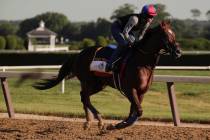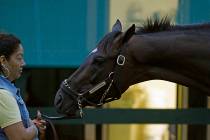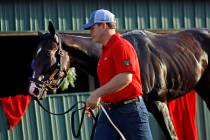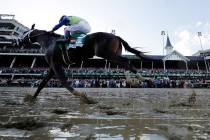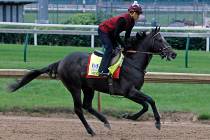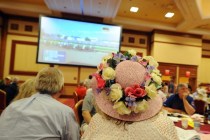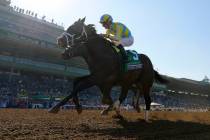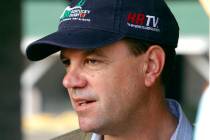Internet poker legislation could be jackpot for racing
Despite all the negativity coming out of the University of Arizona Racing and Gaming Symposium in Tucson and from the closure of New York City off-track betting, a potential bolt of positive news might be on the horizon.
Nevada Sen. Harry Reid is pushing hard to legalize online poker. Reid will apparently attach an Internet poker bill onto the much larger tax-cut bill. If the contentious package passes, the racing industry could be the beneficiary of a much-needed boost.
Reid's poker bill will "allow only existing casinos, horse tracks and slot-machine makers to operate online poker websites for the first two years after the bill passes."
I'm no Einstein, but I do know this: Current racetrack owners would then join a select group among those holding a license to enter the online poker business. And a key part of the bill's language is a two-year head start before the rest of the competition arrives.
This could put many business variables into play that would take marketing experts and lawyers to sort through.
For example, a racetrack ownership license might be attractive to some of the rich Internet poker websites. It would be a small price for them to pay to legally enter the U.S. poker market.
Millions of Americans already play poker online, albeit illegally, and some could be drawn to websites offering horse betting. If just a tiny percentage of those players can be converted into horseplayers, the effect on handle would be substantial.
Racetracks that lack slot machine licenses would be able to tap into a lucrative new revenue stream.
The tax-cut bill is under heavy scrutiny, but the online poker legislation could be an intriguing shot in the arm.
If it passes, a blue-ribbon panel of horse racing thinkers should be assembled to discuss the possibilities that it presents. It also would be an ideal time for an industry first: acting in unison instead of as 20 fiefdoms competing against one another.
Online poker is coming, and the horse racing industry should grab an ownership stake while it can.
I can think of at least two instances when racing interests tried to fight an oncoming train. First, 40 years ago, the New York Racing Association declined the original license to operate New York City Off-Track Betting. Second, the California tracks opposed the Indian tribes and the introduction of slot machines instead of partnering with them.
Richard Eng's horse racing column is published Friday in the Las Vegas Review-Journal. He can be reached at rich_eng@hotmail.com.








